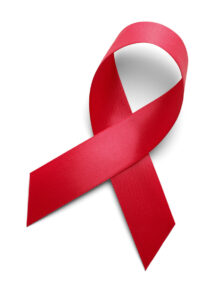 Gay Men and “Santa Daddy”
Gay Men and “Santa Daddy”
As a gay men’s specialist psychotherapist, coach, blogger, and podcaster, it’s sometimes a challenge to keep coming up with “content”, especially for the “seasonal” material each year around the holiday season. I was thinking of what I might share with you when I heard Cher’s new Christmas album, playing her version of “Santa Baby,” a 1950s song first made famous by another gay icon of generations past, Eartha Kitt, a sultry Black singer and civil rights activist.
That song, if you don’t know it, is about a coy woman singing to Santa about the “adult toys” she wants like a “’54 convertible, light blue”, a “duplex,” and “checks,” and a “yacht” and a “platinum mine” and “some decorations bought at Tiffany’s.” It’s really a precursor to the 80s hit, “Material Girl,” from another gay icon diva, Madonna.
I got to thinking about “gaying up” the lyrics and came out with “Santa Daddy,” from a gay man’s perspective. That’s the theme I’d like to share with you now, to get you in the holiday spirit, whatever you celebrate, or how.
In a previous blog article, I wrote about a “secular appreciation of Christmas” because I wanted to take a Secular Humanist approach about how even people who don’t identify as Christian could still enjoy the Christmas season, with many ideas and lessons in the symbolism of the season. I offered this because so many gay men have been the victims of religious abuse, from many different religions but especially Christian conservative ones, and they might feel deprived of their spiritual expression and traditions because they’ve been harmed by the anti-LGBT aspects of so many religious sects, in the United States and worldwide.
Another blog and podcast I offered was about “reclaiming your spirituality” after recovering from religious abuse. In our own, gay-affirmative way, we can reclaim the holiday season for our own, whether we identify as Christian, or something else. We can celebrate the holidays with our Family of Origin, if we have that chance, or, we can focus on celebrating with our Family of Choice in a gay men’s community cultural context.
Gay men and their whole “relationship to” not only the spirituality of the holiday season, especially in the Christian sense, but also in the cultural or even commercial sense, can be complex. As a psychotherapist, it can be interesting or even fun to examine the psychodynamic aspects of this.
For example, much of the Old School psychoanalysis, which has a history of being obnoxiously anti-gay, discussed much about sons and their fathers, and the various aspects of the Oedipus Complex, about “killing your father and marrying your mother” and so on. A little of that goes a long way; I find it ostentatious and outdated, and not gay-affirmative whatsoever. As my grandmother used to say, “Blech!”
But much has been written about gay men and their fathers. I have written about this myself, as have my colleagues like Dr. Joe Kort outside Detroit, Michigan, about how gay men can seem “alien” to their usually straight fathers, even in unconscious ways, before the gay son is old enough to be aware of what sexual orientation really is or could “come out”. In my work with clients, I often hear gay men who did not have that great a relationship with their fathers because they were rejected by them for being gay. Others, especially more lately, had more progressive fathers who were supportive of their gay sons, perhaps now in the more recent generation of fathers than before.
Whether our relationships with our fathers were good or bad, or even if the relationship existed if they were “around” us growing up, gay men (some, not all) can develop an appreciation, even a fetish, for the “Daddy Figure.” As an older gay man, I get this sometimes from younger gay men, and I take it in the spirit that I think it was intended, as a compliment and a flirtation, if perhaps with some objectification in there, too. I don’t mean that in an incestuous way – although I know guys have their own fetish fantasies about that – but that’s different from the actual (traumatic) incestuous experience, or any non-consensual sexual experience with an older man . But what I mean is more in the iconic, gay sense of “worshiping the daddy.”
Younger gay men can sometimes idealize or objectify older gay men as “daddies” as the Masculine Ideal, and bring all kinds of projections to them. This is very similar to the leather or BDSM Master role. They might embody the traits that are NOT about “toxic masculinity”, but traits like large stature, muscularity, hairy chests, beards or other facial hair, professional success and stability, graying hair, money and affluence, ruggedness, stamina, bravery, confidence, skills, leadership in their profession or in their community, and wisdom. Younger men can sometimes see in “daddies” an idealization of the older man they want to become over time, with the wisdom that comes with age, and not necessarily any challenges or even deterioration from aging; that’s a delicate balance.
When we combine this with Christmas traditions of decorations, color, music, maybe dancing, crafts, lights, noise, magic, and celebration, we come up with our own interpretation of Santa Claus. Each country in the history of Christmas has had cultural interpretations and manifestations of how this “Santa Claus” figure has evolved, and in some countries, the “magical kindly mythological figure” who gives children gifts at Christmas is a woman!
The history of St. Nicholas as such has its Nordic origins, and so many world cultural traditions mix. But for Americans, our interpretation of Santa Claus has a lot to do with the history of commercial retail, such as the Santa Claus as depicted in early 20th century advertising for Coca-Cola, or the Santa of the Macy’s Thanksgiving Day parade. Advertising, movies, television, and even video games have all given us interpretations of Santa Claus; he’s always been an evolving figure subject to cultural influences and interpretations.
Gay men can have their own interpretation of Santa Claus, then. Gay men have been known (perhaps in an unfair stereotype, but, hey, some stereotypes are based in truth) to be materialistic, especially when younger gay men can coyly entice older gay men with, “Ooooh, Daddy, take me shopping!” If you’ve ever been on a gay cruise, or to a gay resort, or even to any city’s fancier restaurants, you might see older/younger gay male pairing, just like plenty heterosexual younger/older pairing. I’ve written earlier about navigating an age difference in gay male relationships (often copied, I might add), and the risks and rewards of this. I work with this SO frequently in my psychotherapy and coaching practice for gay men. These age-difference relationships can be rewarding, but they often need their own specific support to survive and thrive. Some of the comments on that podcast episode on YouTube are from guys in these relationships who speak about their experience, usually expressing gratitude and joy in making it work for them.
Those are the real-life examples, but when it comes to the theatricality and fantasy of the Christmas holiday season, our interpretation of Santa Claus can be fun, too. The idea of the rugged, handsome, imminently good-natured “daddy” figure of Santa Claus bringing us all kinds of fun (and maybe naughty) gifts is a gay man’s joy.
The idea that Santa will only bring gifts to “good boys and girls” and that he makes a Naughty List and a Nice List smacks of parental control and child discipline. Gay men are experts at turning the “naughty” into “nice” when we take a sexual interpretation of this. Christmas cards at gay gift shops often show the gay Santa figure in various “gear” such as leather, boots, and of course the image of Santa Daddy “spanking” the Naughty Boy (I just got a t-shirt with this image, one of my many Instagram ad impulse purchases, only the “boy” is a young adult man) is iconic. The whole thing just lends itself to BDSM and Dom/sub dynamics.
But this figure can also inspire us to be what all Santas and other mythological figures of the season do, which is to give of ourselves. Gay men give so much: we tend to be in the helping professions as therapists, coaches, nurses, physicians, teachers, professors, and entertainers. Because so many of us know what hardship is, being given instead of care, love, comfort, and support, but challenge, criticism, bullying, hardship, discrimination, oppression, and even hate, at the level of family, church, or politics. We really know the importance of giving, especially of ourselves in a loving way. For Christians, their interpretation of Santa Claus reflects the “giving” aspect of Christ, and the giving aspect of the Bible’s “three wise men bringing baby Jesus gifts of gold, frankincense, and myrrh” (which are really odd gifts for a baby!).
The fun of the holiday season can include the exchange of gifts: giving to those we love, or maybe appreciate and respect (such as coworkers or people who help us in daily life, like the Postal Carrier), and receiving things that we treasure throughout the years. The holiday season can certainly “bring out the kid in all of us.”
For some, the holiday season does not hold good memories, and it can be associated with hardship of so many kinds, not just for gay men, but for anyone. Just as we can balance giving and taking, we also need to honor and respect that some people balance the joys of the holiday season with the hardships that can also be associated with them. Part of the recognition of the Holiday Season is both the celebratory part, and also the sobering part, when we wish for “Peace on Earth, goodwill toward All.”

LOST GAY GENERATION
Gay men and “Santa Claus as daddy” can also be an exploration of not only intergenerational interaction among gay men in the local, national, and global community, but also a reminder of how we did lose an entire generation of gay men to the height of the AIDS crisis in the 80s and 90s. Even for guys who are too young to remember that, or even were not nearly born then, our community still feels the repercussions of this. There is a hole in our community’s population demographic where the gay men who would be in about their 60s or 70s now should be, who were lost. Maybe that makes it even more important that younger gay men and older gay men find ways to interact and celebrate, maybe in honor of those we’ve lost.

GAY MEN AND THE PATERNAL INSTINCT
Younger gay men and older gay men mixing can be thematic of the Paternal Instinct that is in all of us, to some degree. I’ve written before about how gay men can satisfy the Paternal Instinct, whether that is actually having children (such as fostering, adoption, or surrogacy – I’m working with a couple of single gay men on that, now, in my practice, as well as gay men who had children in heterosexual marriages before their own coming out) – or in other ways, such as serving as older friends, confidants, bosses, teachers, benefactors, or mentors. We can even express a certain Paternal Instinct with our pets (cats and dogs and others). The Paternal Instinct for gay men (just like the Maternal Instinct for lesbian women) exists parallel but separate from how straight men address it: we may not want to “make babies” with women in the heterosexual sense, but we might have a primal identification with “being fathers” and feeling this as we move through the lifespan from youth into middle age. Gay men need support (sometimes in therapy!) for how to cope with the Paternal Instinct in a way that works for them.
SANTA AS ALLEGORY
Santa Claus is the ultimate “benevolent father” figure, sometimes even being called “Father Christmas,” and this has still more origins in religious themes, such as “God the Father” or “Heavenly Father,” or priests being called “Father” so-and-so, and Christians seeing Christ as the “benevolent father figure” or other global religious traditions’ heroes such as Mohammed, Buddha, Mithras, or even the Pagan Sun God. The idea of “looking up and to” the Benevolent Father Figure to love and support us – and even provide us with “stuff” – whether that’s Santa Claus bringing gifts, or “God answering our prayers” – where prayers are like children’s letters to Santa Claus – has deep historical and cultural roots for millenia, worldwide.
So that’s why we as gay men get to have our own conception of “Santa Daddy”. We make holiday traditions our own, that work for our specific needs in the gay men’s and broader LGBT+ communities. It’s been a long tradition to “make the Yuletide gay,” and we are all happy to oblige.
Happy Holidays, and I hope Santa is good to you.

If you’d like to follow up this holiday season with a bright, shiny New Year, consider therapy or coaching. New Year’s is a great time to reflect on the past year, what went well for you, and celebrating your successes, and what didn’t go well, that maybe calls for doing some work on yourself in order to make the new year better.
If this interests you, I provide therapy (for clients in California, where I’m licensed, to individuals, couples, and polycules), sex therapy, or coaching (life, career, sex, relationship, executive) to gay men all over the United States, and the world. I can explain the differences in those services when we talk.
For more information, call or text 310-339-5778, or email Ken@GayTherapyLA.com or Ken@GayCoachingLA.com.
I’d be happy to help make this year your best ever!


